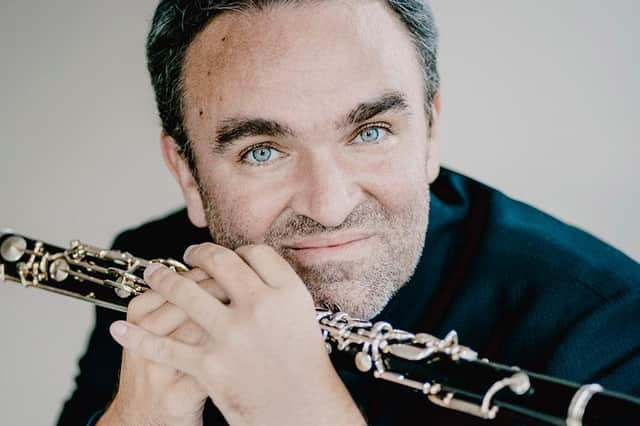Music review: BBC SSO & Jörg Widmann, City Halls, Glasgow


BBC SSO & Jörg Widmann, City Halls, Glasgow ****
Part-way through the slow movement of Mozart’s Divertimento in D, K136, a ripening phrase was accompanied by a sudden explosion of natural sunlight. That’s the beauty of these SSO afternoon concerts, of which this was the first to return after their pandemic-induced suspension – the weather can play a part, and in this case it felt as if nature was saying “welcome back”.
And what a sunny version of the Mozart this was. Led from the leader’s chair by Laura Samuel, the SSO strings were a smiling, free-flowing organic whole, the neat precision of Mozart’s springy Allegro giving way to the lyrical sweetness of the Andante, all pointing towards a final Presto distinguished by its classiness and stylish exuberance.
Advertisement
Hide AdAdvertisement
Hide AdEnter then Jörg Widmann – clarinettist, conductor and composer – whose artistic partnership with the SSO is still in its infancy, but whose presence dominated the rest of the programme.
The orchestra’s inbuilt autonomy was still an active factor in supporting him as soloist in the chamber orchestra arrangement of Weber’s Clarinet Quintet in B flat. It worked a treat, for in tandem with Widmann’s extravagant interpretational display, which steered dangerously but justifiably close to melodrama at times, the SSO strings deftly second-guessed him, meaty and dynamic in realising Weber’s restive writing.
Then came Widmann’s own compositions. The first, Fantasie, is now a well-established concert showpiece for unaccompanied clarinet, which he performed in a streamed RSNO programme just over a year ago. An unapologetic vehicle for his impish showmanship, and inspired by the fitful and surreal spirit of commedia dell-arte, Widmann’s performance was a dazzling one-man display.
He ended by conducting his ten Freie Stücke, written in 2002 and essentially abstract in concept, but which, through the power of their often aphoristic expression and spectral sound world, offered a compellingly intense conclusion to a refreshingly unorthodox programme.
A message from the Editor:
Thank you for reading this article. We're more reliant on your support than ever as the shift in consumer habits brought about by coronavirus impacts our advertisers.
If you haven't already, please consider supporting our trusted, fact-checked journalism by taking out a digital subscription at https://www.scotsman.com/subscriptions